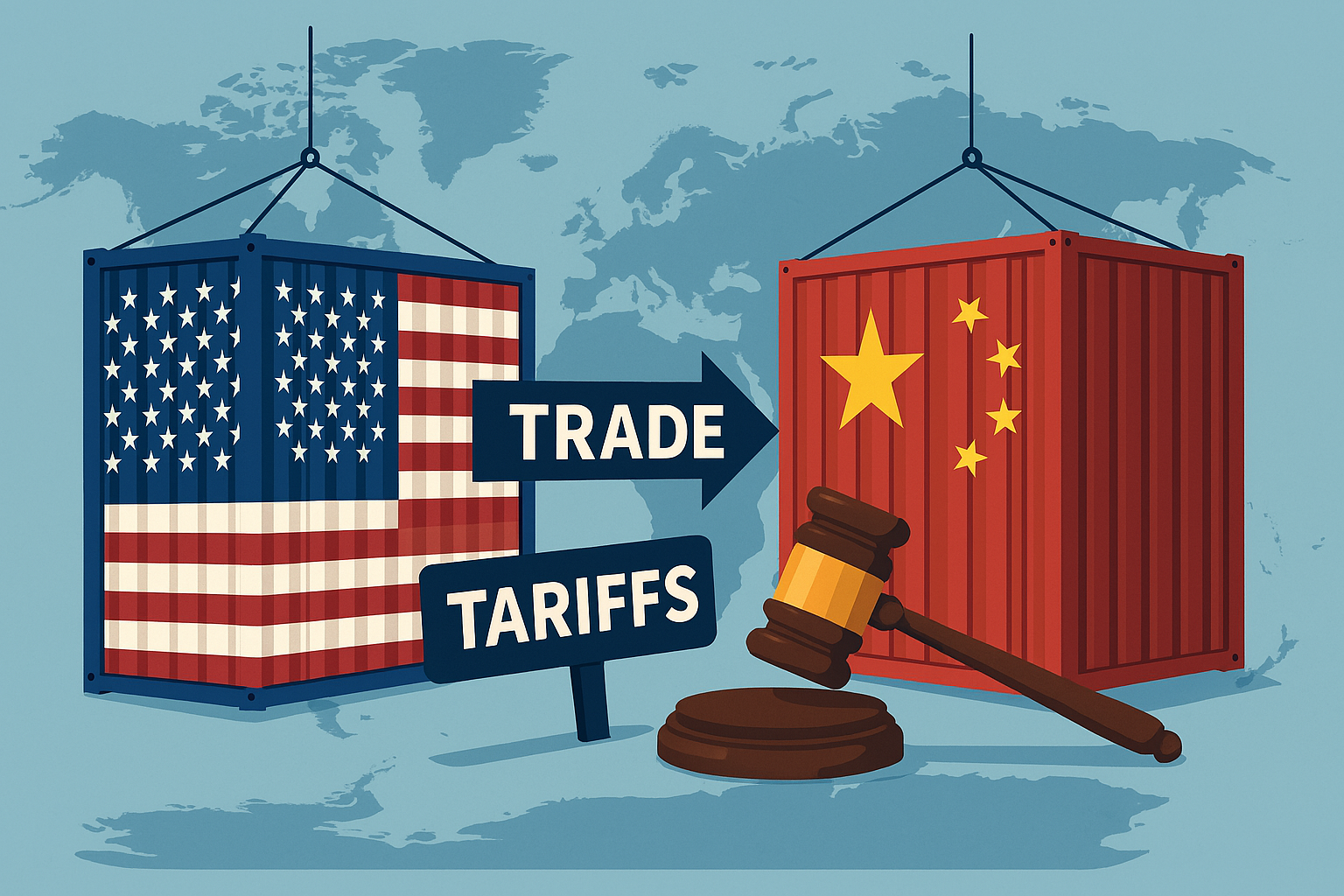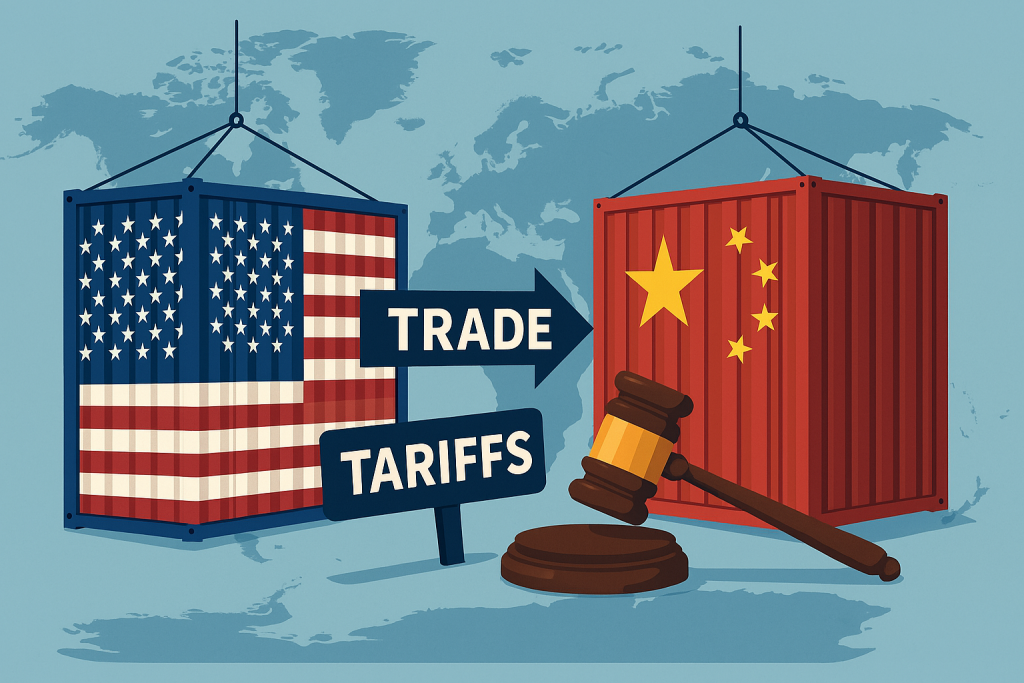
In the early days of 2025, talks of tariffs are all the rage. Tariffs seem to be President Trump’s favorite (and possibly singular) negotiation tool and economic ploy. With tariffs being announced, enacted, rescinded, and delayed frequently, operating an international business can make planning extremely difficult. One of the justifications is to push production to the United States, restoring manufacturing jobs. So for a business like ours with custom bobbleheads, is it possible? Can custom bobbleheads be made in the USA?
Tariffs vs Protective Tariffs
Generally speaking, tariffs are used to protect domestic industries – namely “protective tariffs” – as opposed to general tariffs blanketing entire countries or industries. When I started writing this blog, some targeted tariffs were being enacted (such as on aluminum, and the auto industry), which is generally how policy will use tariffs to support outcomes without substantial unintended consequences.
As of April 2nd, the administration has enacted blanket tariffs (including an additional 34% against China, where most of our production is done) on entire countries. These aren’t protective tariffs done with strategic intent to promote US businesses, but rather punitive tariffs with intent that is difficult to completely comprehend from an economic perspective.
Here’s a brief description of the difference, with of course protective tariffs being a subset of tariffs as a whole:
- Tariff – A general term for a tax or duty imposed on imported or exported goods. Governments use tariffs to generate revenue or regulate trade.
- Protective Tariff – A specific type of tariff designed to protect domestic industries from foreign competition. By making imported goods more expensive, protective tariffs encourage consumers to buy domestically produced products, helping local businesses grow. These tariffs aim to shield local industries from being undercut by cheaper foreign imports.
Protective tariffs can of course be very useful to stimulate domestic growth. In modern times, cars are a good example of this. There are plenty of cars produced, or at least assembled, domestically, so tariffs were put on foreign auto imports (and parts) to support the American car industry. I’m not here to talk about cars, as this can get complicated with parts vs assembly vs foreign companies producing in the US, but the point is you can use tariffs to give companies an incentive to produce vehicles in the US.
While protective tariffs can be helpful, it’s pretty hard to justify general tariffs when you’re the world’s largest economy. Which of course, brings us to bobbleheads.

Bobbleheads Made in the USA?
For issues we’ll get into below, it isn’t feasible to produce bobbleheads in the United States. No tariff is going to bring production stateside, and even if it did, we’d still need to source materials from other countries.
In other words, a tariff on imported bobbleheads isn’t protecting the domestic bobblehead production industry, because it doesn’t exist.
Our partners produce custom bobbleheads in a region of China close to the source of the clay materials used to produce them. We could import the clay materials from China (they don’t exist in the US), pay import tariffs on the material costs, and then open a manufacturing plant here in the US.
The problem? Custom bobblehead production is very labor intensive. The average custom bobblehead can cost 10-15 hours to produce.
If an artist in the US makes $35/hr, that would mean the cost of production alone could be up to $500. Add on local taxes, facility rent, utilities, shipping, marketing, insurance – all the costs of running a business here – and we’d need to sell custom bobbleheads for over $1,000.
People just aren’t going to pay that much for a small gift like this. Even if we made the crazy assumption that sales would NOT decrease if we increased our prices to $1000, tariffs would need to be set at about 1500%, not 34%, to force production domestically. In other words… custom bobbleheads cannot be produced in the USA.
Protected Tariffs on Related Gifts
Since we can’t produce in the US and neither can our competitors, a tariff on bobbleheads (or any small figurine for that matter) would not be a very good example of a protective tariff, as there is no domestic production happening or that can happen to protect.
You could argue that while tariffs don’t protect a domestic bobblehead industry, it could encourage substitute goods to be purchased that are produced in the USA.
For example, instead of giving all your groomsmen bobbleheads, you could give them personalized leather wallets that are made in the USA. Not nearly as cool, and your groomsmen would of course be extremely sad.
That argument is fair enough, but it would mean some goods just wouldn’t be available in the US. Products like bobbleheads or fast fashion that would cost several times more to produce domestically simply wouldn’t exist in the US. This is what people are referring to when they’re making comparisons to North Korea – your country would only have domestically-produced brands and products, limiting competition, variety, and options available.
Let alone something we couldn’t even produce, like coffee. Hawaii can’t grow enough. What am I going to do, start drinking bourbon for breakfast?
Life without foreign goods would be considerably less fun. I think the world agrees, and it’s not very controversial: international trade has made the world a better place.

What’s the Plan?
Thousands of businesses in the US import from overseas, and taxing imports is going to hurt all of them and it’s going to cost consumers more for the same products. That includes us.
Our plan? We’re going to run promos and discounts to prevent or limit price increases for our customers during initial tariff periods. Our hope is that tariffs will be negotiated or lifted in the near future, that will allow our company to earn some profit and pay the bills.
Until then, like many American small businesses, we’re preparing for leaner times. We’ve added a tariff fee to our checkout of only 12.5% and will cover the additional tariff risk ourselves (to be transparent – China does not pay any portion of the tariff, and we can’t make them). This rate will likely need to increase if tariffs become permanent or extend for a long period.
Our commitment to quality and service remains the same, and we want to continue to create amazing custom gifts for you despite all the current uncertainty.
